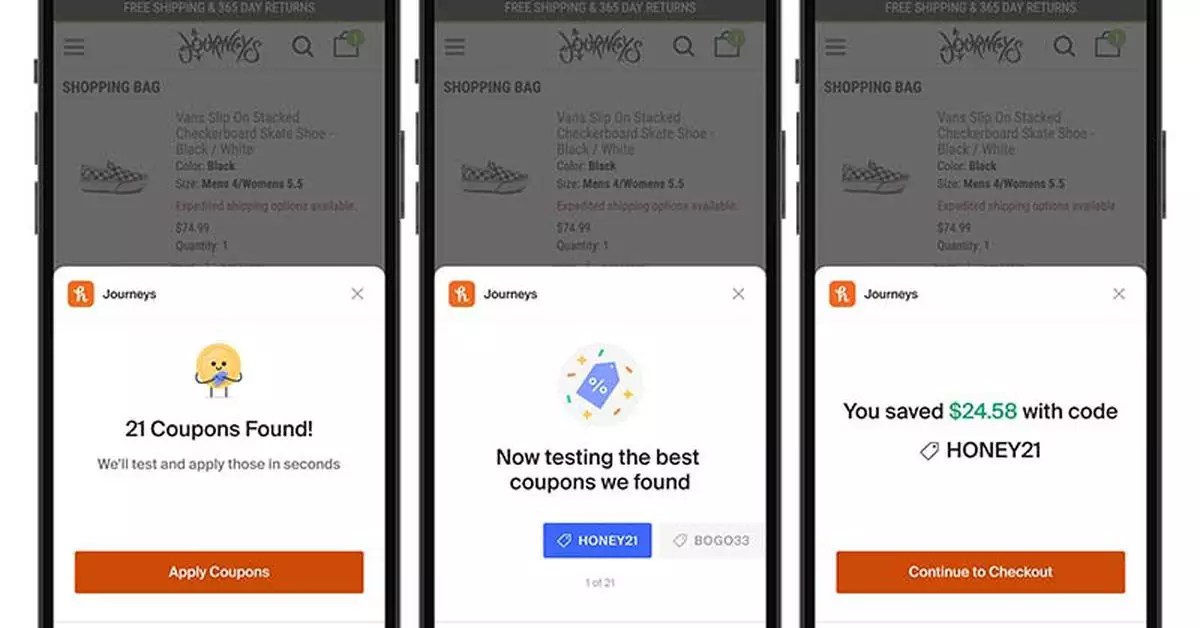PayPal Honey has long been marketed as a tool designed to enhance the online shopping experience by locating discount codes at checkout. This supposedly seamless integration aims to save customers time and money, allowing shoppers to enjoy greater discounts without the tedious process of manually searching for coupons. However, recent scrutiny has arisen regarding the legitimacy and effectiveness of the Honey browser extension, leading some users to question whether the service is genuinely beneficial or a detrimental addition to their shopping endeavors.
In a compelling video by YouTuber MegaLag, troubling allegations surface regarding Honey’s practices. He describes the extension as a “scam,” asserting that it undermines influencer revenue by hijacking affiliate links. According to MegaLag, when consumers use Honey after clicking an influencer’s link, the extension replaces that link with its own tracking ID, redirecting the sale’s credit to itself rather than to the influencer who initially directed the shopper. This act raises ethical concerns about the relationship between Honey and those whose content promotes it.
Furthermore, MegaLag criticizes the widely-promoted premise that Honey will discover every available promo code online. In his experience, the extension frequently falls short of delivering real savings, often suggesting less advantageous Honey-branded codes instead of exploring translatable savings available through a simple internet search. Thus, the question arises: does Honey truly prioritize finding the best deals for consumers, or is it more focused on enhancing its partnerships with select retailers?
Following the surfacing of these allegations, PayPal’s Vice President of Corporate Communications, Josh Criscoe, defended Honey by stating that it abides by established industry conventions, including “last-click attribution.” While this may be standard practice, it doesn’t alleviate the concerns raised by critics about the fairness of such a model. With Honey’s widespread adoption, with almost 5,000 sponsored videos on various YouTube platforms, one cannot help but wonder if the inherent conflict of interest could overshadow the purported value Honey provides to consumers.
The discontent with Honey extends beyond individual experiences. Influencers and content creators have expressed their dissatisfaction as well. Reports indicate that Linus Tech Tips, a prominent tech-focused YouTube channel, severed ties with Honey as a sponsor due to similar concerns regarding the handling of affiliate links. This decision reflects a larger rift between influencers who rely on such sponsorships and a platform that may be undermining their financial interests.
Critics have suggested a basic workaround for consumers looking to avoid Honey’s affiliate link hijacking. By using Honey’s discount codes in a different browser, shoppers can circumvent the risk of inadvertently shifting their support away from influencers. However, this solution only scratches the surface of the issue, as the main concern lies in the ethical implications of Honey’s practices and whether they serve the customer or inhibit the potential savings promised.
The reaction from online communities toward Honey has been mixed. While many users continue to use the platform for grabbing deals, others have expressed lingering unease with its functionality and the impacts it has had on influencer monetization. Consumer confidence in Honey may see repercussions as additional influencers come forward and share their own experiences, potentially shaping a new narrative regarding the browser extension’s effectiveness and integrity.
While PayPal Honey initially appears to be a convenient solution for securing online discounts, recent allegations of unethical practices and widespread discontent have cast a shadow on its reputation. As users become more aware of these issues, the conversation surrounding Honey invites scrutiny and could lead shoppers to seek more transparent alternatives. This ongoing debate highlights the importance of ethical considerations in digital partnerships, particularly in an era where online influencers play a vital role in consumer trust and marketing efforts.


Leave a Reply